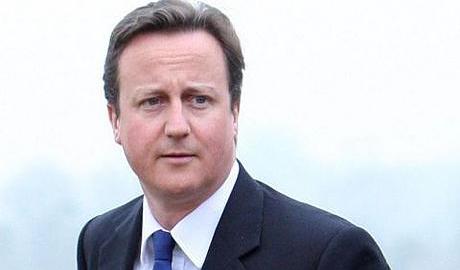A British Coalition Made in Heaven—or Hell?

So what are we to make of the new British coalition Government that made its appearance, in the shape of David Cameron and Nick Clegg, in the 10 Downing Street Rose Garden yesterday? (The Rose Garden, for the benefit of American readers, is a Tony Blair construct, which he copied from the White House Rose Garden, presumably with the intention of impressing Messrs. Clinton and Bush on their London forays.) Cameron and Clegg are cut from much the same cloth. They both went to exclusive schools, and neither has actually held jobs in the real world. Professional politicians to their fingertips, the two were drawn together by the electoral arithmetic that would not allow for one-party majority rule. Oh, and a shared dislike of the brooding Scottish former Prime Minister, Gordon Brown.
This is Britain’s first coalition since the Second World War, and both parties have given up quite a bit to come together. In doing so they have upset supporters from both of their camps. Many Tories have spent too many years fighting the Lib Dems as they are known, to allow their parties policies to be watered down, and for this new Government to look—if it is possible—more progressive than the preceding one. Many Lib Dems have spent too many years fighting the Tories at local level to register any real levels of enthusiasm over the Faustian pact. And many voters voted for Clegg’s Lib Dems to keep the Tories out.
Still, the electorate wanted this outcome and at the moment, and despite all of the parochialism and trivialisation that marks out the British commentariat, most voters are prepared to give this lot a punt. Yet, even before the ink is dry on this new deal, it is possible to discern the cracks that are likely to appear. Granted, this is a deal fixed in Britain’s first five-year Parliament—this device designed to stop the new partners from falling out. Granted too, both parties seem to agree on an early attempt to cut the deficit, and on education policy. But the real risk to the Lib Dems is that in the public eye at least they become subsumed into the Conservative Party. So for the now Opposition Labour Party, there are already seamless new opportunities.
That first potential crack could widen into a veritable lava flow, given Cameron’s appointment of his old friend George Osborne as Finance Minister, and the Liberal Democrat, Vince Cable as Business Secretary. Their first spat is likely to be over moves to strengthen the power of the European Central Bank to regulate the City of London. This will be resisted by the City—and likely by Osborne. Cable on the other hand has been a sharp critic of the derulatory frenzy that gave us the current banking crisis and wants those same banks to be broken up.
So, we are in for some interesting times. Me? I am pretty gloomy about the state of Britain’s finances, and share a belief with others that major cuts in the public expenditure budget will shortly lead to soaring unemployment. Which is why I might just take myself past the Canadian High Commission in the next few days to see if there is an escape route out of town.





